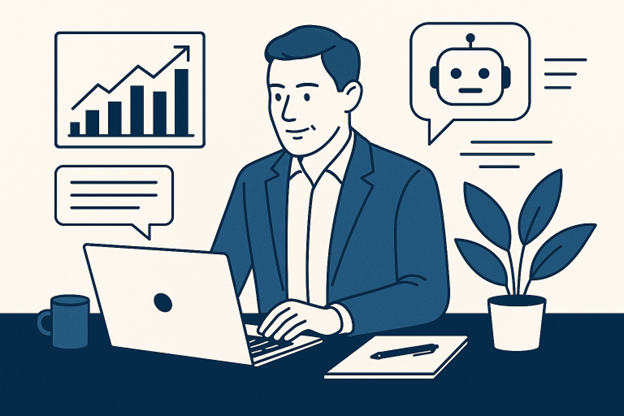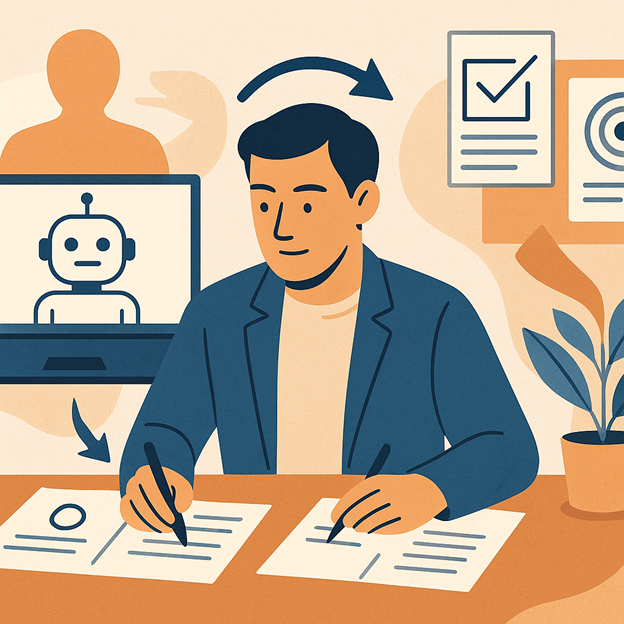Innovation Management Watch Summary: "Research: Gen AI Makes People More Productive—and Less Motivated" by Harvard Business Review
May 26, 2025
🧠 Gen AI’s Double-Edged Impact
A new large-scale study from researchers at Columbia and NYU sheds light on a less-discussed effect of generative AI in the workplace: the hidden psychological costs that can arise even as performance improves. While Gen AI enables faster and more polished work across tasks like writing, brainstorming, and communication, it may also reduce intrinsic motivation and increase boredom—especially when employees return to tasks without AI support.
In four studies involving over 3,500 participants, the researchers found a consistent pattern: people using Gen AI produced higher-quality content, but later reported lower engagement and enjoyment on follow-up solo tasks.
✍️ Performance vs. Motivation: A Trade-Off
The experiments involved tasks such as writing emails, drafting performance reviews, and generating creative ideas. When using Gen AI, participants’ outputs were consistently longer, more structured, and emotionally intelligent. For instance:
- Emails featured warmer tone and more empathy.
- Performance reviews were more analytical and helpful.
However, once participants switched to tasks that didn’t involve AI, the psychological cost became clear:
- Intrinsic motivation dropped by an average of 11%.
- Boredom increased by 20%.
This dip was attributed to a reduced sense of ownership and creative engagement during AI-assisted work. The researchers argue that the most fulfilling parts of work—decision-making, creativity, problem-solving—are often taken over by AI, leaving humans with the less stimulating aspects.

🎯 Why It Matters for Innovation Leaders
This presents a critical challenge for leaders deploying AI across innovation workflows. While Gen AI can enhance output quality, it may gradually erode the deeper engagement and autonomy that fuel long-term innovation. The more teams depend on AI for complex or creative tasks, the more likely they are to lose touch with the underlying cognitive effort that builds expertise and satisfaction.
🛠️ Five Actionable Recommendations
To capture Gen AI’s benefits without harming morale, the authors suggest rethinking workflow design:
- Blend AI and Human Input: Let Gen AI assist, but require human refinement to maintain agency and creativity.
- Design Purposeful Solo Tasks: Follow AI-supported work with tasks that offer autonomy and challenge.
- Clarify AI’s Role: Make it clear that AI is a tool, not a replacement, to help preserve psychological ownership.
- Rotate Task Types: Alternate between solo and AI-assisted tasks to maintain mental engagement.
- Train Mindful AI Use: Equip teams to use Gen AI critically, focusing on when and how to apply human judgment.

🔭 Outlook
The future of Gen AI isn’t just about automation—it’s about thoughtful collaboration. As workplaces integrate AI deeper into daily operations, leaders will need to carefully protect what makes human work meaningful. This study suggests that maintaining a balance between performance and psychological well-being is not just a cultural issue—it’s a core innovation strategy.
To explore the full findings on Gen AI’s psychological impact in the workplace, read the original Harvard Business Review article here.
This summary is based on the original article published by Harvard Business Review. All rights to the original content remain with the respective copyright holders.

